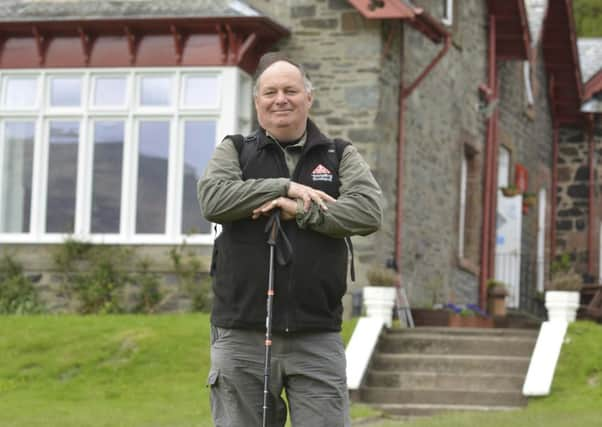Keith Legge: Youth hostels come full circle in digital age


Naturally when the opportunity arose in 2004 to head the organisation, by now known as SYHA Hostelling Scotland, I took it. I discovered that the not-for-profit charitable organisation still retained the original ethos, dating back to the early 1930s when youth hostelling was founded as a philanthropic means of getting people away from the industrial cities into the great outdoors, at least for the weekend.
Youth Hostelling probably reached its heyday in the 1960s and 1970s when the original Ochils-to-Borders network was expanded from Sutherland to Dumfries and Galloway. In those days people cycled more and used public transport, and in some youth hostels you wouldn’t be allowed in if you arrived by car.
Advertisement
Hide AdAdvertisement
Hide AdWhen I became chief executive over 13 years ago, the organisation faced big challenges, not because it was doing anything wrong, but because so many excellent competitors had moved into our territory; private hostels, budget hotel chains, B&Bs and campsites.
My job was not just to preserve but to develop the organisation and make it financially sustainable, while respecting its heritage and purpose of enabling people – especially young people – to move around Scotland at an affordable price. To do that we had to think strategically, which meant closing youth hostels which were no longer as popular as they once were or were too expensive to maintain.
We also had to modernise and develop, for example, our £10 million youth hostel development at the top of Leith Walk in Edinburgh serving our cultural and heritage guests replaced two old buildings which were no longer fit for purpose.
We were still delivering a 1960s model when the world had moved on. We had to listen to what people wanted, which was different for the city sites than the small towns and more remote locations. While some still just wanted a dormitory bunk bed and a place to dry their socks before venturing back into the wilderness, a large proportion of others wanted more privacy.
Today, we have 34 youth hostels, with the larger year-round youth hostels supporting the smaller seasonal ones. We employ 260 people in high season and accommodate about 400,000 guests every year. Our £8 million turnover translates into an estimated £25m contribution to the Scottish visitor economy. As a charity and not-for-profit organisation, I am pleased that we have produced the same revenue from a smaller base, all the while listening to our guests’ feedback when re-investing all surpluses generated into improving the facilities.
As well as making ourselves financially more efficient, we have modernised the way in which we are governed. Our members now directly select trustees, who come from a wide variety of backgrounds with a diverse range of skills and experience.
What am I most proud of? Probably the way our employees have embraced all the necessary changes. We have a great team of people who go the extra mile and act as a de facto information service for the local area, which in turn enhances the guest experience.
My successor will face many challenges: increasing regulation and greater competition from new low-price offerings. But youth hostelling is here to stay, and recent developments are even taking us full circle, closer to our founding principles. A growing number of our Scottish, UK and international guests don’t want fluffy towels and TVs in their rooms but are more interested in authentic experiences, protecting the environment, in fitness, well-being and adventure. After 86 years, we are growing in relevance, getting people out and about in Scotland, even if what they are escaping from is not factories and coal mines but their computer screens and smart devices.
Keith Legge retires as Chief Executive of SYHA Hostelling Scotland at the end of June, a post he has held since 2004